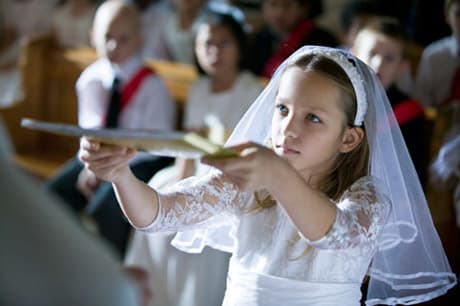I didn't write it down but the number of displaced, unwanted children in the UK according to the epilogue in actress-turned-director Samantha Morton's The Unloved was a shockingly appalling number. The reason I didn't write it down is because I needed to get out of that theatre so badly.
Unwanted children is a serious subject and Morton has always proven herself to be a very serious actress. The Unloved, however, is so intensely serious in its creation and topic that it only serves to put its audience off instead of involving them.
There isn't much of a story to speak of — Morton just follows a lovely little 11-year-old girl named Lucy (Molly Windsor), who's been beaten by her father and is estranged from her mother. She's subsequently placed in a government-owned childcare house and we watch as she is exposed to theft, drugs and sex between some of the guardians and the older kids living in the house.
She basically comes and goes as she pleases and all her social worker can do is try to get through to her that she really shouldn't wander off. There are of course, well-intentioned folks working in the house as well but the overall experience is pretty deplorable. There is clearly a better upbringing to be had.
Lucy is basically the observer and subsequently she passes on her child's perspective to us, but we never get it. What we do get is what seems like Morton's perspective of what's going on. Morton understands how bad the situation is and, as adults, we can see for ourselves and figure it out pretty quickly.
If she really wanted us to connect with and be moved by what we were seeing though, she might have let Lucy do more of the looking.
(Revolution)Unwanted children is a serious subject and Morton has always proven herself to be a very serious actress. The Unloved, however, is so intensely serious in its creation and topic that it only serves to put its audience off instead of involving them.
There isn't much of a story to speak of — Morton just follows a lovely little 11-year-old girl named Lucy (Molly Windsor), who's been beaten by her father and is estranged from her mother. She's subsequently placed in a government-owned childcare house and we watch as she is exposed to theft, drugs and sex between some of the guardians and the older kids living in the house.
She basically comes and goes as she pleases and all her social worker can do is try to get through to her that she really shouldn't wander off. There are of course, well-intentioned folks working in the house as well but the overall experience is pretty deplorable. There is clearly a better upbringing to be had.
Lucy is basically the observer and subsequently she passes on her child's perspective to us, but we never get it. What we do get is what seems like Morton's perspective of what's going on. Morton understands how bad the situation is and, as adults, we can see for ourselves and figure it out pretty quickly.
If she really wanted us to connect with and be moved by what we were seeing though, she might have let Lucy do more of the looking.
